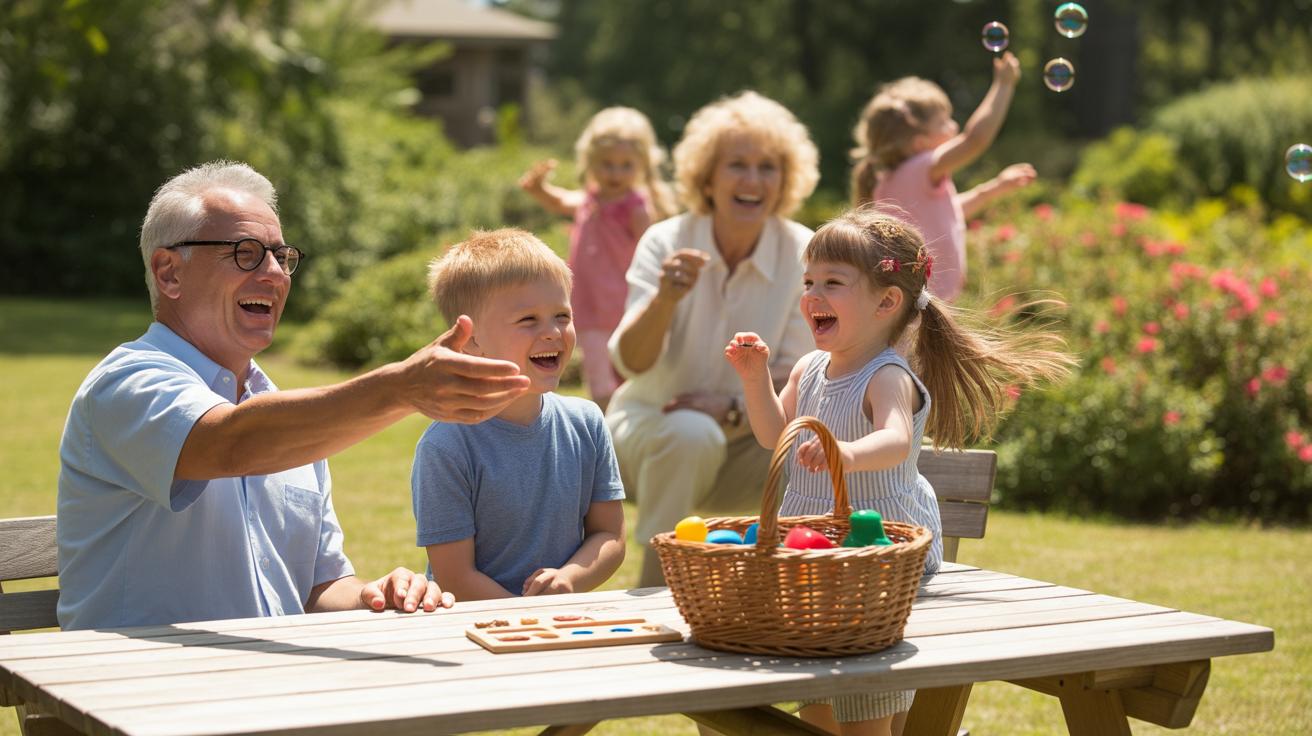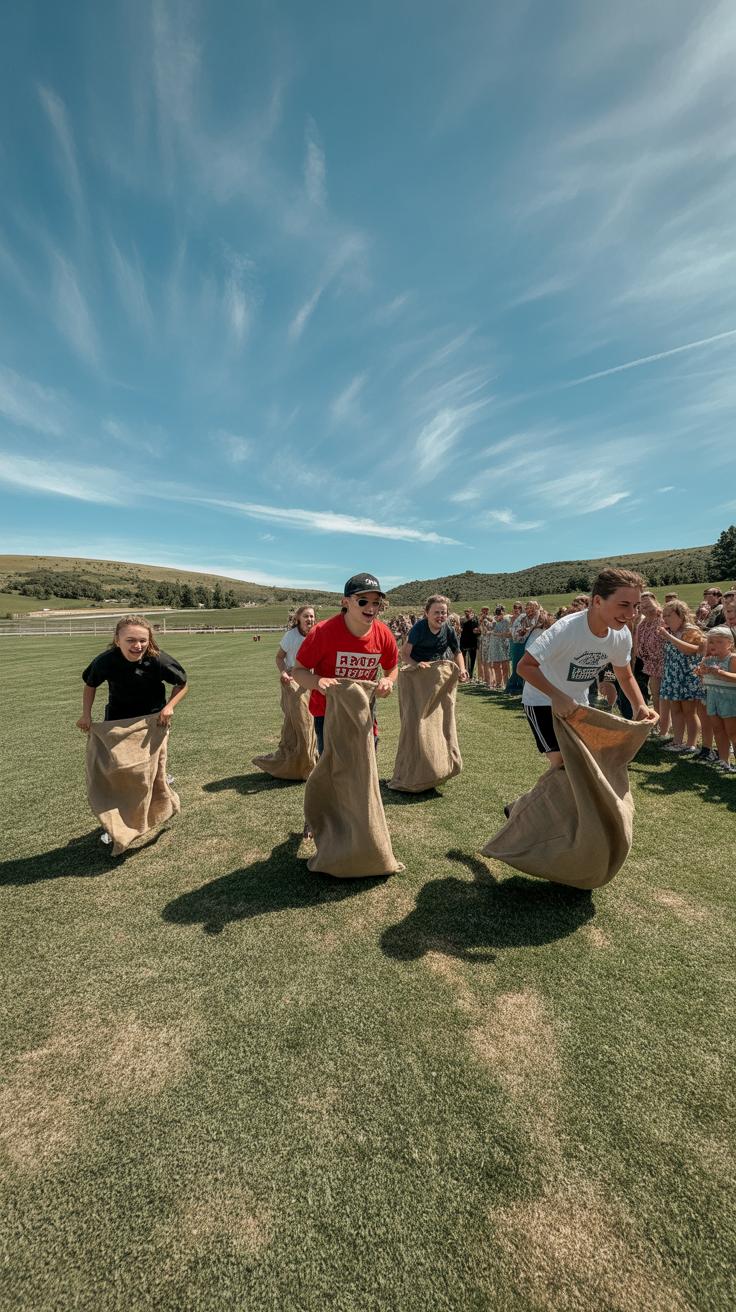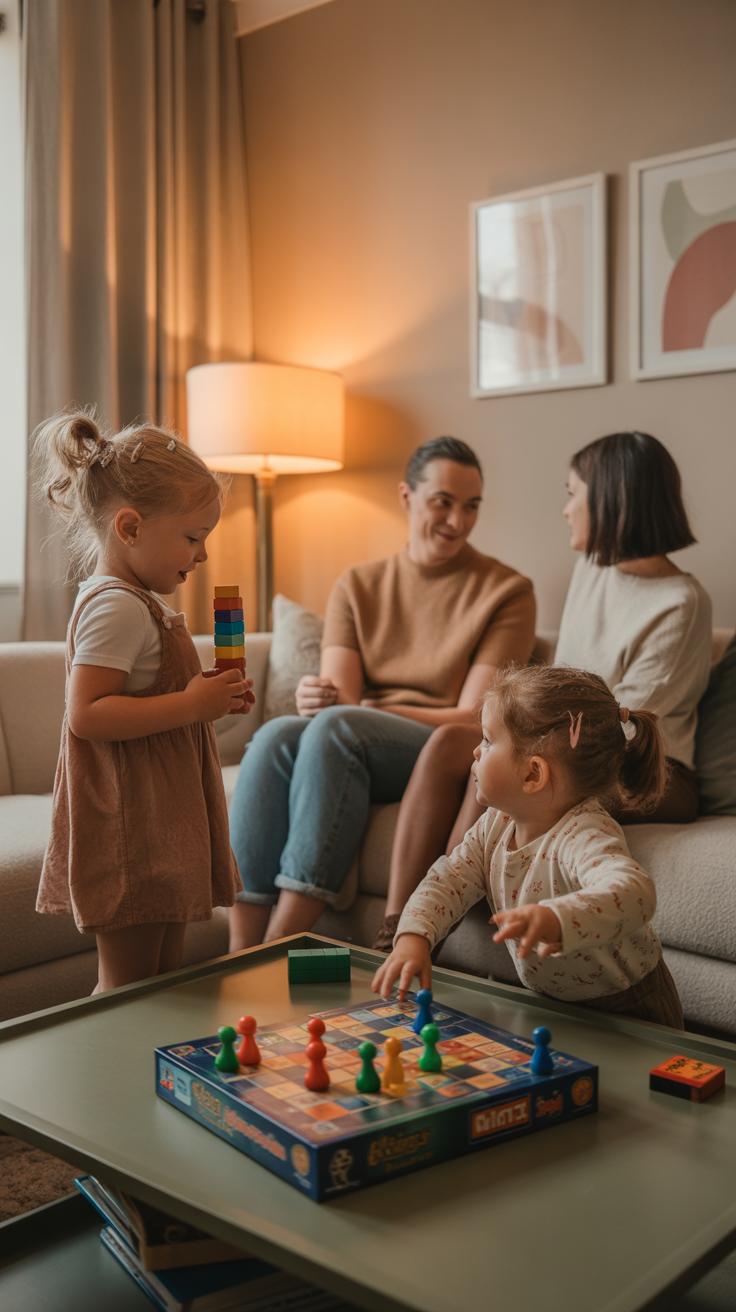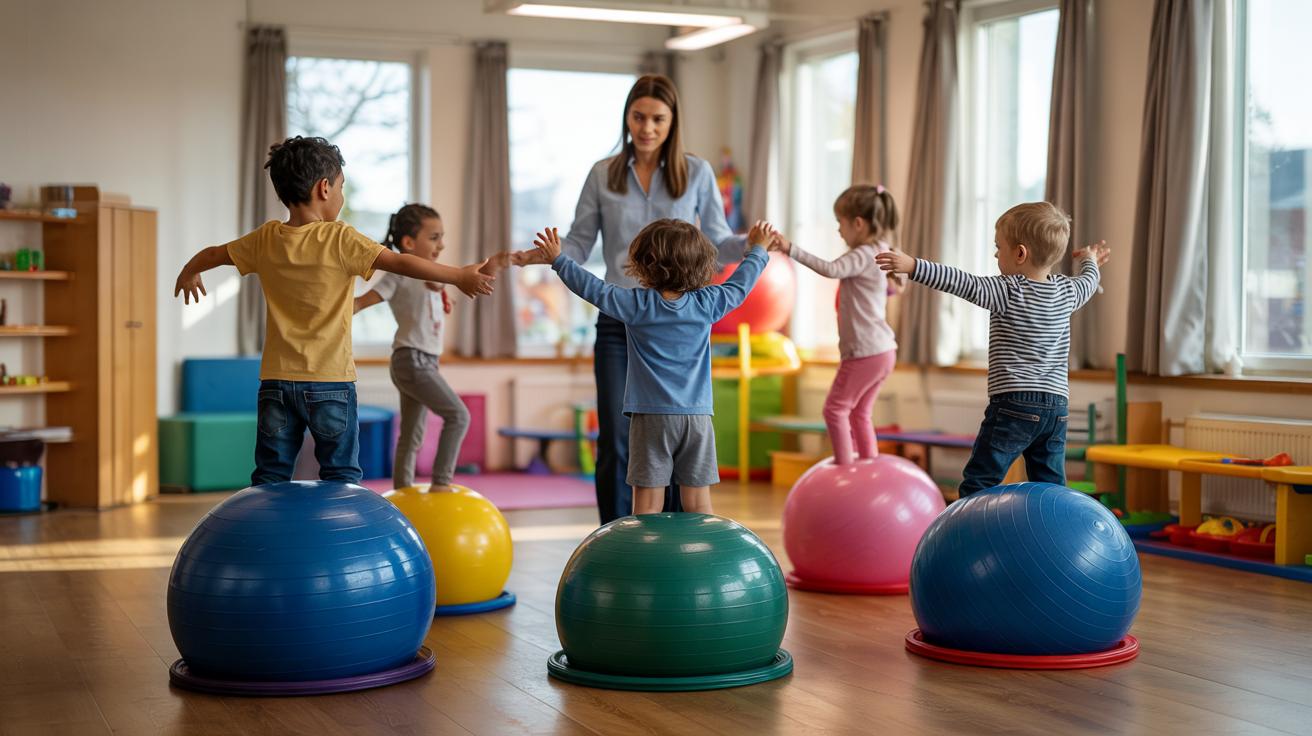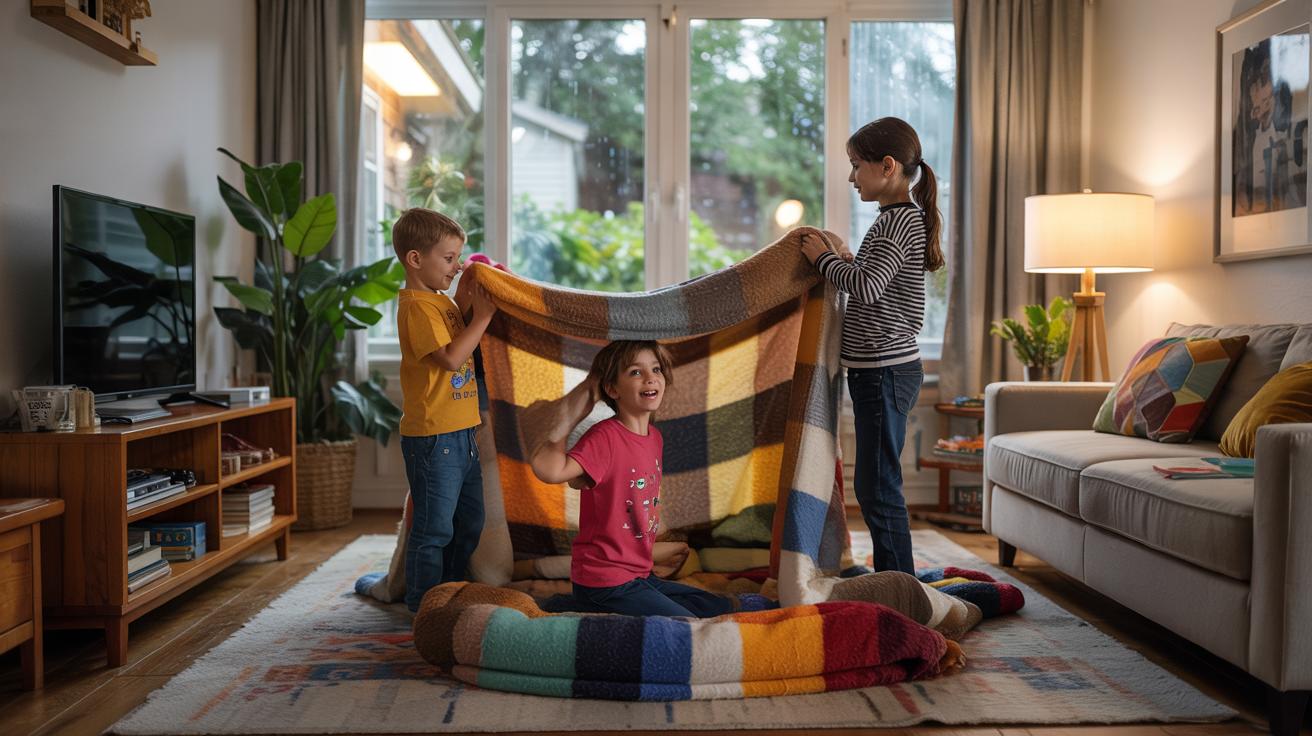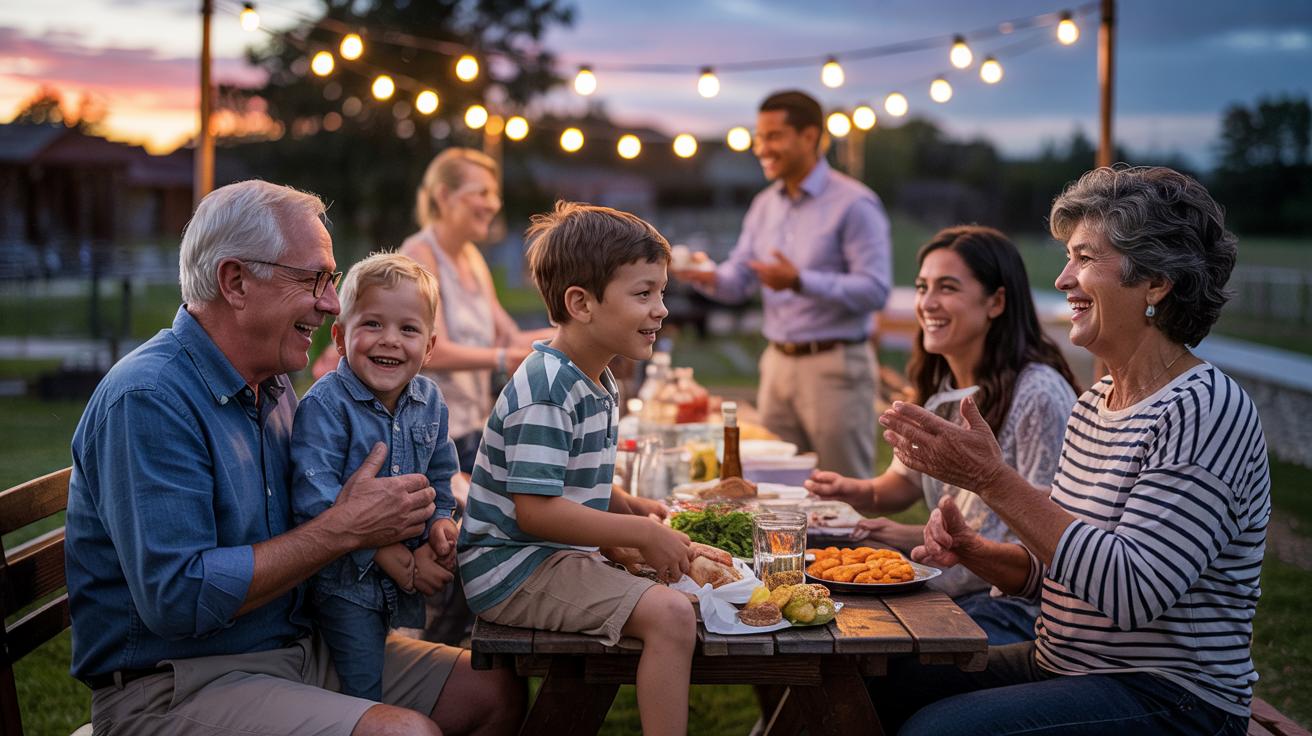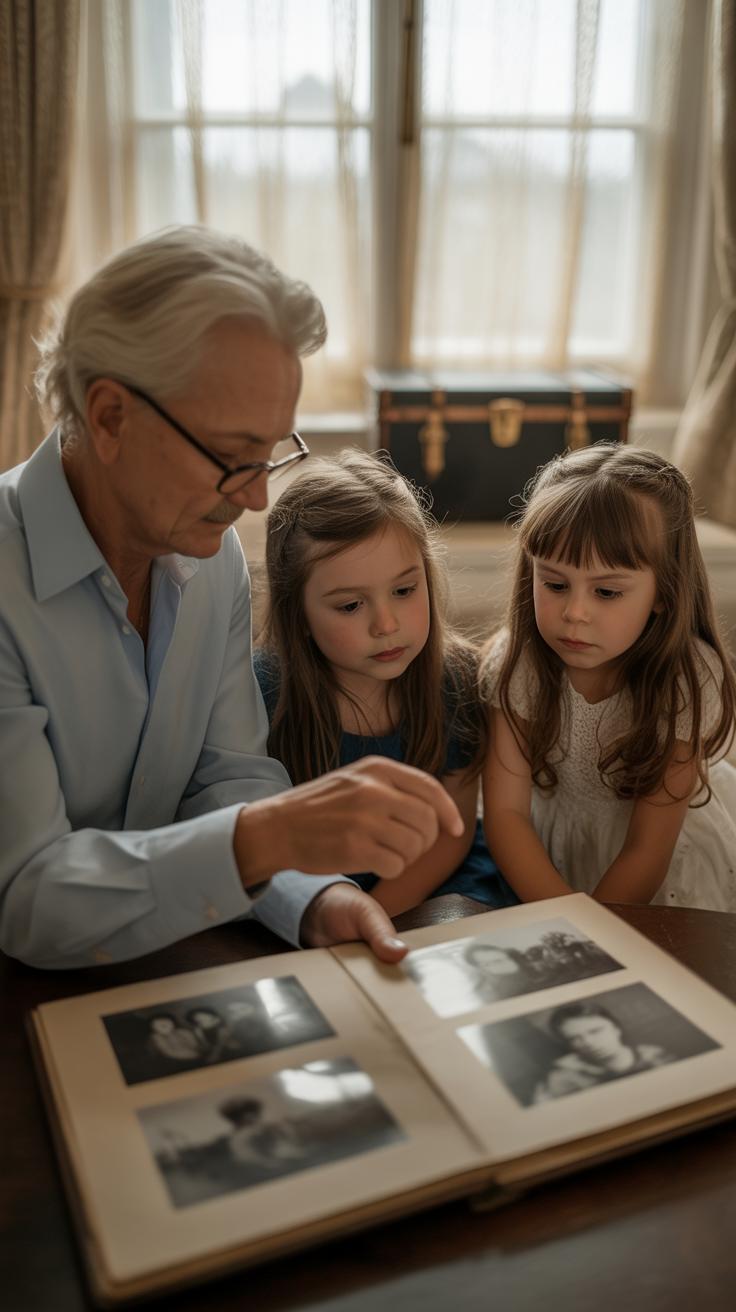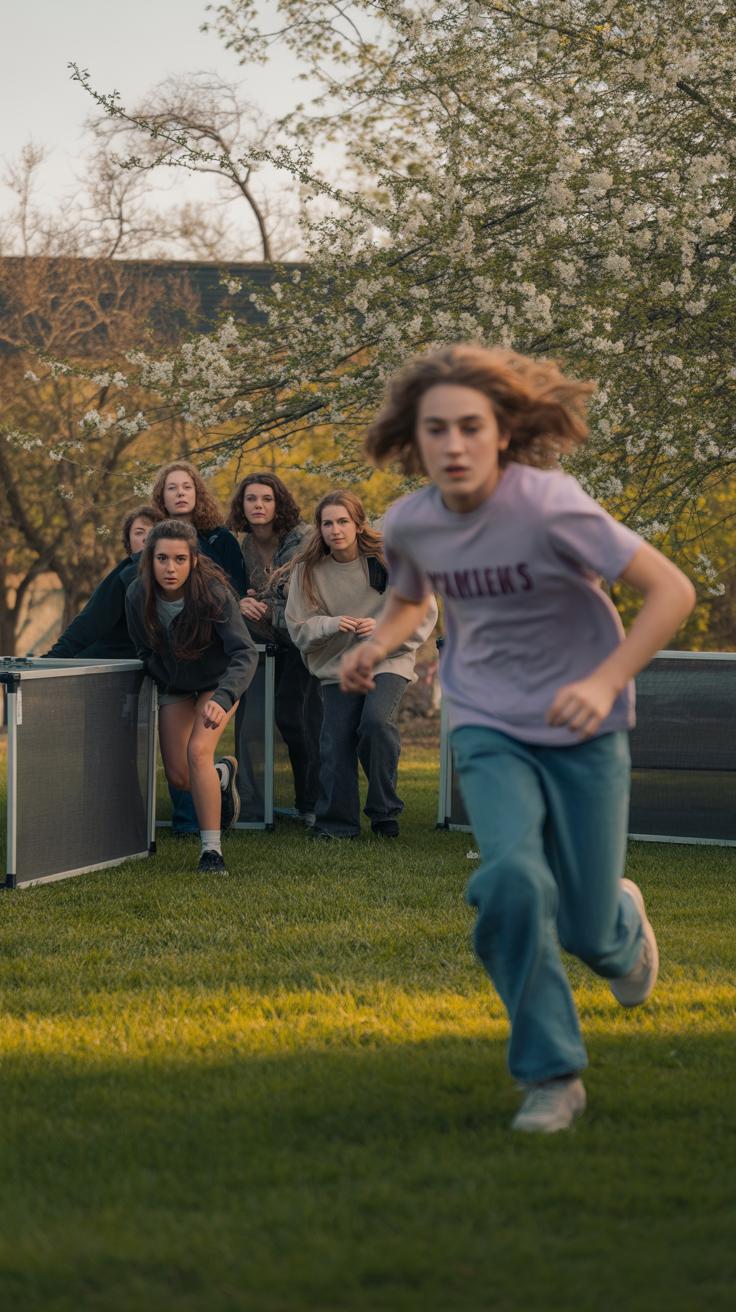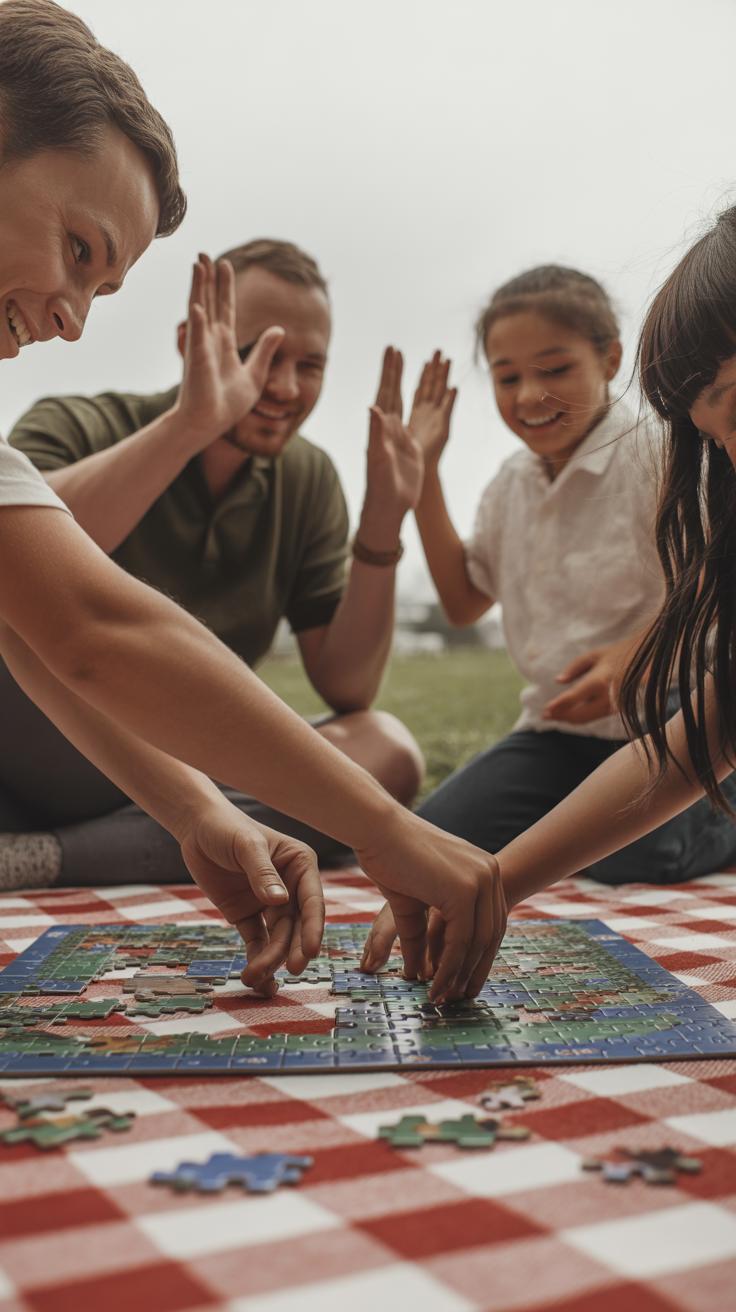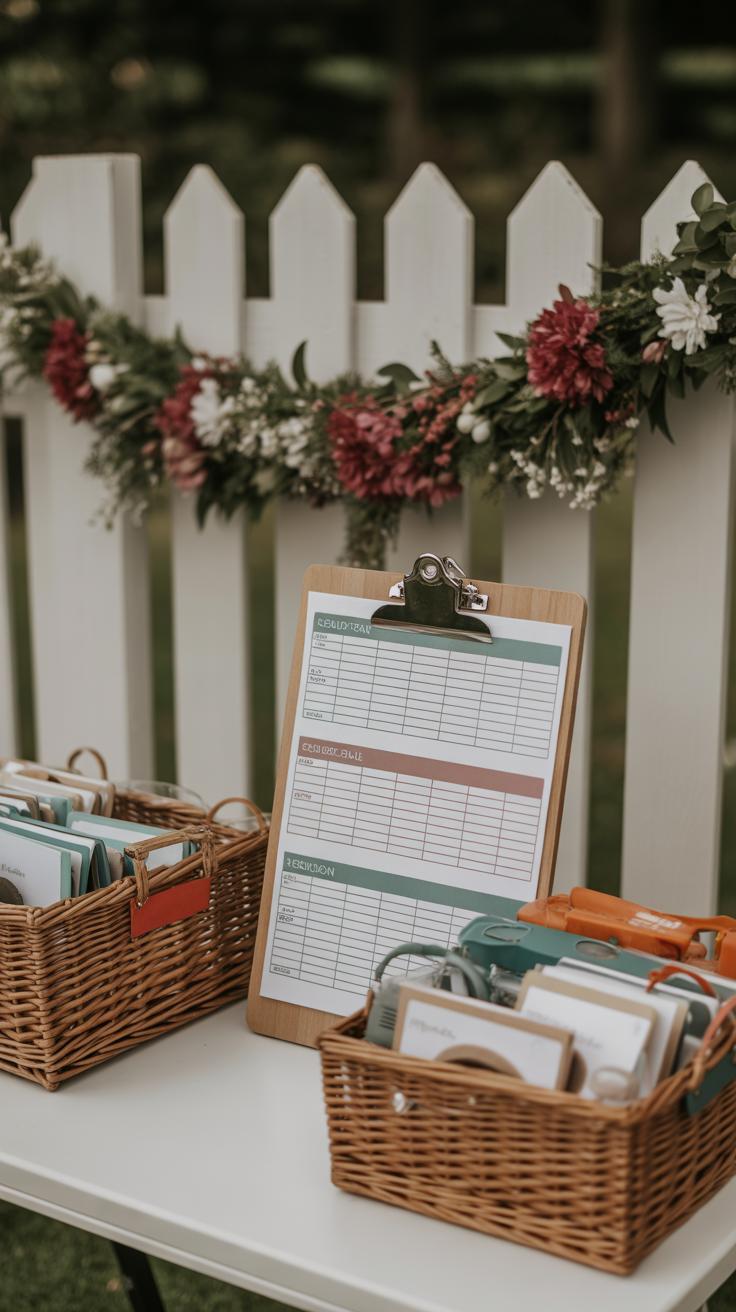Introduction
Family reunions are special events that gather members from extended families. These gatherings often include meals, conversations, and recreation. They offer a unique chance for all generations—from grandparents to distant cousins—to connect. Planning activities that involve everyone can make these reunions memorable and enjoyable. Family reunion games are one way to encourage participation and create joyful memories during these occasions.
Choosing the right games can help break the ice and boost interaction among family members. When you organize games that suit all ages and interests, you make the reunion lively. Games can support teamwork, laughter, and friendly competition. They also help family members learn more about each other. This article shares practical game ideas and tips to inspire your next family reunion.
Family Reunion Games That Bring Everyone Together
Family reunion games play a key role in making gatherings more than just a meeting. They encourage people to talk, laugh, and share moments, turning strangers into friends. Games help create happy memories that everyone remembers long after the event ends. When families have members from different generations, games become a bridge. Kids, parents, and grandparents hear each other’s stories and see each other as teammates rather than just family. This connection builds unity. Including games in your reunion also keeps energy high and breaks the ice when family members have not met before. The benefits go beyond fun; games promote teamwork, communication, and trust among family members.
Role of Games in Strengthening Family Bonds
Playing games actively involves family members. This participation brings them closer emotionally. When you laugh or work together in a game, you create positive feelings. These moments help you understand family members better because you see their reactions, teamwork, and humor. For example, a family relay race can lead to encouragement and cheering that warm hearts. Game nights where family members guess answers about one another help people learn new things about relatives. These shared fun experiences build trust and create stories that everyone recalls fondly. The next time you plan a reunion, ask yourself which games will make your family feel more connected.
Choosing Games for Different Age Groups
Selecting games that everyone can play makes reunions enjoyable for all. Families include small kids, teenagers, adults, and seniors, each with different abilities and energy levels. You want games that invite everyone to join without feeling left out or overwhelmed. For instance, simple games like “Simon Says” work well for kids but can be tweaked for adults. Quiet games such as bingo or trivia suit grandparents and kids who want to relax. Moving games like sack races entertain teens and adults with energy to burn. Offering a mix means no one sits on the sidelines. You might ask, “How can I design activities that respect everyone’s pace and interests?” Choosing inclusive games guarantees smiles on every face and strengthens family ties.
Easy Icebreaker Games to Start Your Reunion
Starting your family reunion with icebreaker games helps everyone relax and feel connected. These games work best when people don’t know each other well or come from different branches of the family. Simple activities create a welcoming space where conversations flow naturally.
Try the “Find Someone Who” game, where each person gets a list of traits or experiences, such as “someone who has traveled to another continent” or “someone who loves gardening.” Family members mingle and ask questions to match traits with people. This turns introductions into a fun challenge and sparks chats.
Another easy icebreaker is “Human Bingo.” Prepare bingo cards with squares containing interesting facts. Players move around to find relatives who fit those facts and mark their cards. This game encourages light talk and makes learning about relatives enjoyable.
Both games need little setup and can be done indoors or outdoors. Think about what topics might engage your family most and adapt the questions accordingly. What are a few fun ways you could help family members start conversations?
Name Game Variations
The key to a smooth reunion is getting everyone to know each other’s names quickly. Name games build that connection while keeping the mood light. One classic version invites each person to say their name along with a favorite hobby or food, like “I’m Sarah, and I love hiking.” Everyone repeats the names and facts as they go, reinforcing memory.
Another variation involves tossing a ball around. When someone catches it, they say their name and then the name of the person who threw it to them. This creates movement and helps people focus on names. It’s perfect for mixed ages since it’s active and fun.
You can also try a name chain, where every player says their own name plus the names of all previous players. This challenges memory but often gets laughs and cheers. These simple twists make name-learning more interesting than just going around the circle. Which version do you think your family would enjoy?
Two Truths and a Lie
“Two Truths and a Lie” is a quick, easy game to deepen family bonds. Each person shares three statements about themselves—two true and one false. The group tries to spot the lie. This game encourages storytelling and reveals surprising facts that might not come up naturally.
It works well when you want to ignite conversations beyond basic small talk. For example, Aunt Linda might say, “I once rode a camel,” “I speak three languages,” and “I hate chocolate.” You guess the false one and learn about her fascinating travels.
Playing this game invites laughter and curiosity. It also turns quiet relatives into the center of attention and praises unique family stories. Make sure everyone takes turns and give people space to explain their truths afterward. What strange or funny truths could your relatives share?
Outdoor Games That Get Everyone Moving
Outdoor games at family reunions help everyone stay active and enjoy fresh air. Parks or backyards are perfect spaces for games that require space and group involvement. Activities like tug-of-war or sack races get family members laughing and moving together. These games invite all ages to join in, from kids to grandparents.
Planning games that encourage cooperation improves family bonds. When everyone must work as a team, it fosters connection and strengthens relationships. You might set up circle games such as passing a ball without dropping it or play tag with a twist of family trivia questions.
Choosing games that suit the space helps keep the event fun and organized. Open fields are excellent for running games, while shaded areas work well for games with props like frisbees or bean bags. What physical games would your family enjoy most outdoors? Consider what fits your reunion space and group size.
Relay Races and Team Challenges
Relay races bring energy and teamwork to your reunion. Simple races like three-legged runs or spoon-and-egg relays adapt easily to different ages. Create teams mixing age groups to balance competition and encourage cooperation.
Team challenges can include tug-of-war or passing objects in sequence. Adjust difficulty by changing race length or adding fun obstacles, like hopping on one foot or balancing a beanbag on the head. These tweaks make the games fair for varied fitness levels.
Relay races get everyone involved quickly. They promote cheering for teammates and sharing small victories, making competition friendly. Can you picture your family cheering for each runner and working together to win? These races bring excitement and connection to your outdoor gathering.
Scavenger Hunts
Organizing a scavenger hunt gets family members cooperating and exploring your reunion space. Design a list of items to find or challenges to complete, such as spotting a certain leaf, finding a family photo, or singing a song together.
Divide the group into mixed-age teams. Assign small tasks that require problem-solving and teamwork. This setup encourages communication and shared excitement as teams race against time to finish the list.
Scavenger hunts introduce a playful challenge that unites family members with a common goal. You can customize the difficulty or theme, focusing on family history or nature. How would your family respond to a hunt that blends discovery with collaboration?
Indoor Games for Rainy Day Reunions
When rain or space limits your family reunion to indoors, you can still create lively and fun moments. Choose games that fit your area without requiring much setup. Simple activities keep everyone engaged and comfortable.
Board games invite all ages to join and spark conversations. Card games or a trivia quiz can bring excitement and challenge without needing much room. Consider using small raffle prizes to boost friendly competition and interest.
If your space allows, team-building games like charades or Pictionary encourage interaction and laughter. They need little equipment and bring out creativity, perfect for families of varied ages.
Have you thought about turning your living room or dining area into a game zone? Small changes in seating can make a big difference for group play. Indoor games give your family a chance to bond in any weather.
Board Game Options for All Ages
You want to pick games that include both kids and adults. Classics like Scrabble, Monopoly, and Uno work well. These games offer straightforward rules that almost everyone understands.
To keep interest high, add house rules or create team challenges. For example, in Monopoly, families can form pairs to encourage teamwork. Scrabble can become a contest to find the longest words using family-related terms.
Try games like Sequence or Ticket to Ride for a fresh twist. They are easy to learn and keep players thinking together. The goal is to mix fun with chances to chat and laugh.
What would happen if you set up multiple game stations? Your family can rotate between games, keeping everyone active and involved throughout the reunion.
Charades and Pictionary
Charades gets your family moving and guessing without using words. Each player acts out a phrase or title while others try to figure it out. It builds quick thinking and cooperation.
Pictionary works well alongside charades. Drawing clues in teams encourages creativity and helps shy family members join in comfortably. Both games break the ice and bring out everyone’s playful side.
You can adapt these games to your family’s interests by choosing themes like movies, sports, or family stories. Small prizes or silly punishments keep the energy up.
Have you noticed how a simple sketch or funny gesture can get everyone laughing? Games like these create moments that everyone remembers after the reunion ends.
Games That Celebrate Family History
Including family history in reunion games helps everyone feel connected beyond just the present moment. You can use old photos, heirlooms, or family recipes to create interactive activities that invite sharing. For example, bring a box filled with objects linked to ancestors and have players guess their stories or who they belonged to. This invites conversation and curiosity.
Another idea is to build a timeline game where relatives add important dates or events they know. You might ask, “Who was the first family member to move to this town?” or “Which relative served in the military?” Creating a visual history fosters pride and sparks questions.
Encourage family members to research or interview elders before the reunion. Their findings can become material for games or discussion. How does your family’s background shape who you all are today? These activities help uncover answers and strengthen bonds through shared heritage.
Family Trivia Games
Family trivia games make learning about relatives fun and interactive. Start by collecting interesting facts from older family members or documents. Questions might include “Who in the family won a baking contest?” or “What was Grandma’s favorite holiday tradition?”
Create multiple-choice or true/false formats to make answering easy and fast. Divide players into teams so younger and older members can work together. Keep score to add friendly excitement.
You can prepare question cards or use a trivia app customized with your family’s quirks. Include fun categories like “Family Weddings” or “Jobs Through Generations.” Do questions about your heritage feel easier or harder than regular trivia? This game educates and entertains by making everyone a storyteller and learner.
Storytelling Circles
Storytelling circles turn family memories into a shared adventure. Start with one person telling the opening sentence of a story about an ancestor or event. Each person adds a sentence, building on what came before.
Alternatively, play a guessing game. One person describes a family event, leaving out key details. Others ask questions or guess what happened next. This encourages listening and learning family history together.
These games challenge memory and imagination, making history feel alive. They also invite quieter members to share family stories they know. What surprising details or emotions come out when you hear stories from others? Storytelling circles build respect and curiosity about your family’s past.
Engaging Kids and Teens with Fun Activities
You want younger family members to stay interested and feel included during reunions. Games that challenge their creativity and energy work best. Kids and teens often enjoy activities where they can express themselves or move around. When planning, think about what excites each age group.
Creative craft competitions invite kids to use their hands and imaginations. Offering simple tools like paper, markers, and glue can spark friendly contests. Try contests such as designing family-themed bookmarks or making nature crowns from leaves collected nearby. Such activities encourage interaction without screens and let children show off their talents.
For teens, team sports and active games provide a way to burn energy and work together. Classics like soccer, tag, and capture-the-flag keep teens moving and talking. These games build trust and team spirit, strengthening bonds naturally. Have you considered splitting teens into mixed-age teams to boost cooperation? Getting teens involved in organizing these games can also increase excitement and ownership.
Balancing Competitive and Cooperative Games
Choosing the right mix of competitive and cooperative games can help everyone enjoy the reunion, no matter their mood or personality. Competitive games spark excitement and can motivate players to do their best. On the other hand, cooperative games encourage working together and foster a feeling of unity. Including both types lets you match the game to the family’s energy level and preferences.
Think about moments when your family might feel more relaxed and open to teamwork. Cooperative games can soften tensions and build stronger connections. When energy runs high, competition can add a fun challenge without causing stress. How can you tell which game fits your family’s mood? Pay attention to how people react to earlier activities and adjust from there.
Finding a balance between competition and cooperation gives everyone a chance to shine and helps create shared memories. Can your reunion benefit from a mix that suits all ages and personalities?
Games That Encourage Teamwork
Cooperative games bring family members together by asking them to work as a team. One example is a “Human Knot,” where everyone stands in a circle, grabs hands with two different people, and tries to untangle without letting go. This requires communication and patience.
Another option is a family scavenger hunt where teams find items from a list. Everyone shares clues and plans routes. This kind of game promotes listening and problem-solving.
Do you want your family to feel closer? Try building a giant puzzle together or playing “Pass the Story,” where each person adds a line to a story. These activities rely on teamwork and encourage laughter and connection while working toward a shared goal.
Friendly Competition Formats
Organizing tournament-style games keeps competition light and fun. You could set up a bracket for simple games like cornhole, trivia, or board games. Make sure to group players by age or skill to keep matches fair and enjoyable.
Use small prizes like homemade certificates or silly trophies to encourage effort over winning. Rotating teams in games like relay races or volleyball lets everyone participate and builds a fun, supportive atmosphere.
How do you keep competition from getting too intense? Remind players that the goal is fun and connection. Keeping rules clear and encouraging cheers for all players helps maintain a positive spirit throughout the games.
Tips for Organizing Successful Family Reunion Games
Preparing Materials and Space
Start by listing all the games you plan to include. Check what supplies each one needs. Collect items like balls, ropes, cones, cards, or markers well before the reunion. This gives you time to replace missing or broken pieces.
Find a flat, open space where everyone can play safely. Think about the age and mobility of players. Separate areas for active games and quieter ones can help avoid crowding. Clear away any hazards like rocks, wires, or sharp edges.
Organize materials in labeled bins or bags. Keep extra supplies handy, such as water bottles or sunscreen if games are outside. This preparation cuts down on delays and keeps the flow steady during activities.
Encouraging Participation and Fair Play
Invite family members to join by explaining game rules clearly and showing enthusiasm. Emphasize fun over winning to lower anxiety about competing. Pair different ages and skill levels together to balance teams and build connections.
Set simple, fair rules and stick to them. Address disputes calmly and remind everyone the goal is to enjoy time together. Praise good sportsmanship often to motivate positive behavior.
Ask questions like, “Who wants to try something new?” or “Ready for the next round?” to keep energy up. You can also offer small rewards like stickers or certificates to celebrate participation, not just winners. This helps create a welcoming atmosphere where everyone feels included.
Conclusions
Engaging family reunion games foster closeness and make gatherings lively. They encourage everyone to take part, from young kids to seniors. These activities help family members bond through shared fun and cooperative challenges. You can choose from a range of games based on preferences and group size. Remember to include games that are easy to understand and play, ensuring no one feels left out. Incorporating games into your reunion creates lasting positive experiences.
When planning games, consider what matches the interests and abilities of your family. Variety in game types will maintain excitement and involvement. Make space for both active and relaxed game options. Family reunions are opportunities to make memories through laughter and teamwork. With thoughtful game choices, you can strengthen your family’s connections and look forward to future gatherings.

